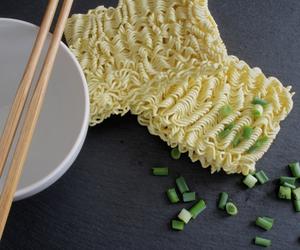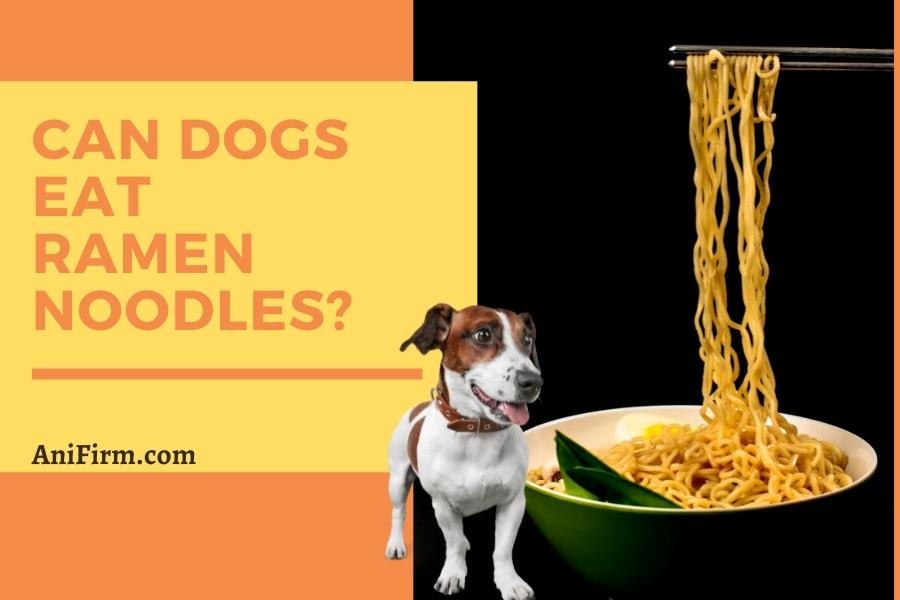Ramen is among those dishes that we love to have on our plate whenever we crave something good. This dish has a lot of ingredients, making it a healthy treat occasionally. Well, when we are saying it is healthy, we are not saying that it is good for anyone. Yes, specifically, we are discussing whether it is safe for your dog or not.
If you want to feed your dog ramen, limit it to a small portion and only if it is prepared at home. If you are considering feeding your dog Ramen noodles, available on the market, this is a big no-no. Here we are discussing the same in detail so that you can have a clear picture of the same query right in front of you. Let’s get started!
Can dogs eat Ramen?

Ramen is safe for dogs if the same is prepared at home, too, without the actual ingredients like onion and garlic. But if you are feeding them with readymade ramen, then be ready to deal with health issues they will face. The readymade, or let’s say the Ramen you just purchased from your favorite food outlet, is not safe for them. The reason for a big “NO” to it is the ingredients in them.
It is also not a good idea to feed them too much homemade Ramen because it lacks fiber, protein, and other important vitamins and minerals. These are also loaded with MSG, TBHQ, and high sodium content that can have an adverse effect on your dog’s health.
Note: The aspects of Ramen we are discussing here are considered to be the ones you are purchasing from the market. These are not applicable to the same bowl you are preparing at home by keeping your dog’s dietary habits into consideration.
Ingredients in Ramen Noodles (including the ramen sauce)
Wheat noodles
Wheat noodles are commonly used in the preparation of ramen dishes. Although these are not harmful, they lack fiber, so it is not safe to feed a dog with them regularly. Occasionally, one can consider
Garlic
Garlic belongs to the Allium family, and the species of this family are toxic to dogs. Although some chefs consider using garlic powder, it doesn’t matter which form is used, this is not safe for dogs.
Online
Likewise, garlic and onion also belong to the Allium family and are toxic to dogs.
Salt
While preparing Ramen, a high quantity of salt is used, and this also has some sodium content, which is not safe for dogs. It lets dogs suffer from sodium ion poisoning and makes them thirsty too.
Different seasonings
Different kinds of seasoning chefs use to prepare Ramen are not safe for dogs, like high quantities of oregano, chili flakes, and so on.
Different sauces
Preservatives
Preservatives are also used in ramen noodles so that they stay fresh in nature for a long time. If you are thinking of getting the same in cup form, you will see that these are loaded with preservatives that are not safe for your dog’s digestive system.
It is also important to know that the nutrition required by a dog’s body for functioning cannot be achieved by ramen consumption. Thus, instead of trying such things, stick to the dog food available on the market for them.
Can I feed my canine with dry Ramen?

Don’t think of feeding your dog with uncooked Ramen as it is very difficult to digest and, in some cases, it is responsible for causing choking hazards. Your pup will definitely suffer from gastric issues, which sometimes worsen their health even more.
Is it safe to feed a puppy Ramen?
If you are sticking to dog-friendly recipes to prepare Ramen, then it will have no adverse effect on your dog’s health. But if you are thinking of considering it for a 2-3-month-old puppy, don’t go for it. Puppy digestive systems are very sensitive, and noodle consumption is not good for them.
Can noodle consumption kill my dog?
Noodle consumption is not safe for dogs, but do know that it will not cost their lives too. There is a nutritional report on noodles published by the United States Department of Agriculture in its food database, and it is as follows:
| Nutrient | Value (as per 100g portion) |
|---|---|
| Protein | 9.38g |
| Total lipid (fat) | 21.88g |
| Carbohydrate | 57.81g |
| Fiber | 1.6g |
| Sugars | 3.12g |
Ramen consumption can have the following effects on your dog
As we all know, ramen consumption is not for dogs due to its high sodium content either. The major problems dogs face after eating Ramen are as follows:
- Tremors
- Diarrhea
- Vomiting
- Seizures
- Depression
As with these conditions, do know that excess sodium consumption will make them thirsty too. In some cases, it also leads to sodium ion poisoning or hypernatremia.
How to prepare Ramen at home?
When you are thinking of preparing Ramen at home, try to avoid all the seasoning and toxic ingredients like onions and garlic. Prepare it plainly to make it dog safe.
What to do if my dog eats Ramen accidentally?
If your dog eats Ramen, there is nothing for you to worry about. If they have consumed a little quantity only, they appear to be absolutely fine. But if they have consumed it in high quantities, perhaps there is a need for you to reach out to the vet immediately.
The takeaway from all this
Ramen is safe for dogs only if it is prepared at home with dog-safe ingredients. If you are thinking of feeding him with Ramen from the market, don’t go for it. In some cases, it happens that the Ramen prepared at home doesn’t suit the dog. In that case, do know that your dog has a sensitive digestive system, and it is advisable to take him immediately to the vet. Also, when you feed your dog for the first time with Ramen, do monitor them for all the changes in their behavior and health. This will be helpful in analyzing whether they like it or not. Friendly advice: always have a word with the veterinary doctor before introducing such food items to your dog. Some dog breeds are quite specific about their diets, and the vet will help you with the same.
